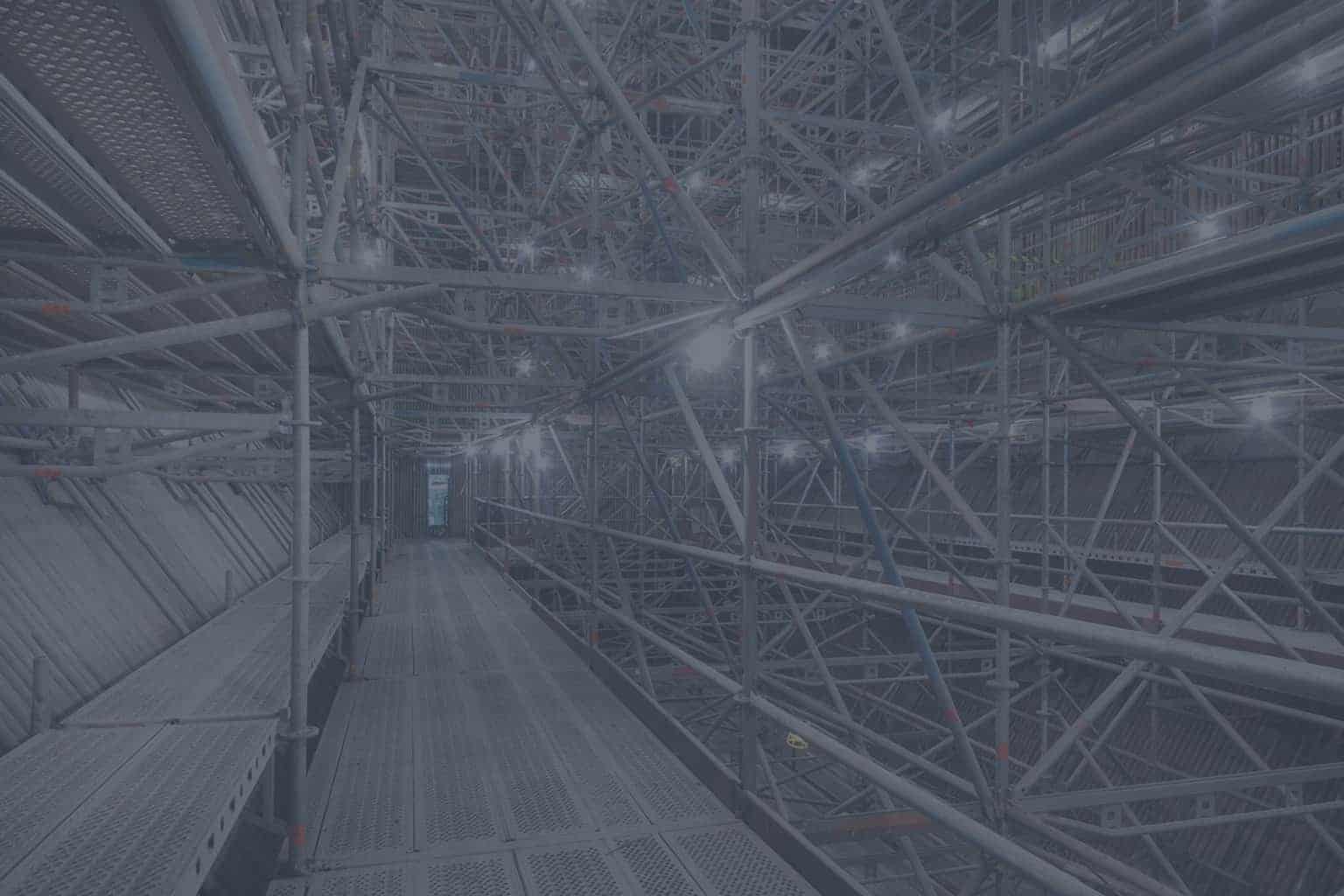As tech powers on, we ask ourselves, where is it going to fit into the scaffold world? Of course, we understand the role it takes in the pre-tendering/pre-planning of our work, in transport and communication, but where is the future for our operatives? What’s the application to the practical world of scaffolding?
System scaffolding is now so widely used in Europe and around the world that our continued use of tube and fitting seems to baffle most people I speak to from other European countries. British contractors choose system so infrequently, the likelihood of you having used it will depend on the companies you have worked for. Geographic location also seems to influence which system you use.
I first encountered system scaffolding whilst working for Tone Scaffolding back in 2007. Their system of choice was Layher Allround and I’ll admit, my first impressions were underwhelming. I couldn’t see the point, or the advantage it gave over tube and fitting. Until, that is, I witnessed the erection of an event scaffold at ExCel London, ready for a ski show. The entire thing went up in a weekend and the result was flawless.
Things have moved on since my Tone Scaffold days. Then, the system future didn’t quite seem like reality. Now, a new player arrives on the market every year, heralding a seismic shift in attitudes and the beginning of an industry-wide adoption of system scaffold.
For those new to system, here’s my shortlist of the key players and a nuts-and-bolts snapshot of each brand based on my experience of working with them. All options include their own roofing systems.
Layher
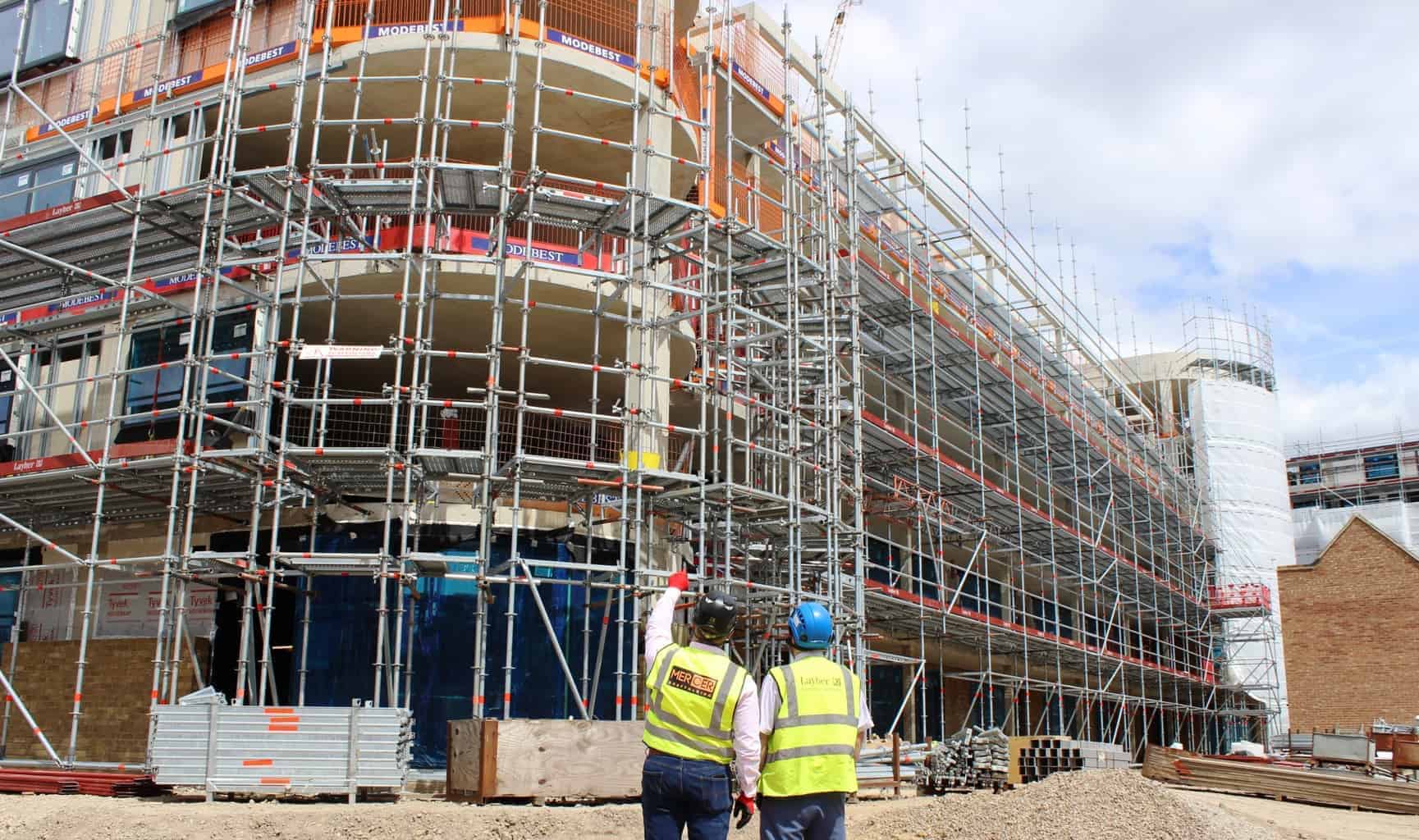
Layher wears its German Engineering with pride. There is little this system hasn’t considered, and it’s backed up by stellar technical support both here and in Germany. Completing the scaffold using all Layher components gives an unbeatable finish – it will leave your client extremely happy with the result.
The one issue I’ve heard voiced about Layher is that, to achieve the perfect fit around a building, you either have to be very lucky or use an adjustable bay. An adjustable bay is exactly what it sounds like: a component that flexes for various sized buildings in order for the scaffolds to join correctly. Once you’ve identified the need for an adjustable, you’d require one on all elevations.
The downside here isn’t the component, it’s that it falls under the category of “non-standard” or “special.” Specials are made to order and come at a higher cost.
On a personal note, I had the pleasure of meeting Mr George Layher at the product launch of Layher Allround Lightweight Components. I was looking at the Layher roofing system when the man himself came over and spoke to me. I am a simple man, and I believe that relationships and passion are the key to success. Mr Layher displays these qualities in spades; he is a true gent. If you have the opportunity to attend a Layher open day or visit them at their warehouse, do it. You won’t be disappointed.
Haki
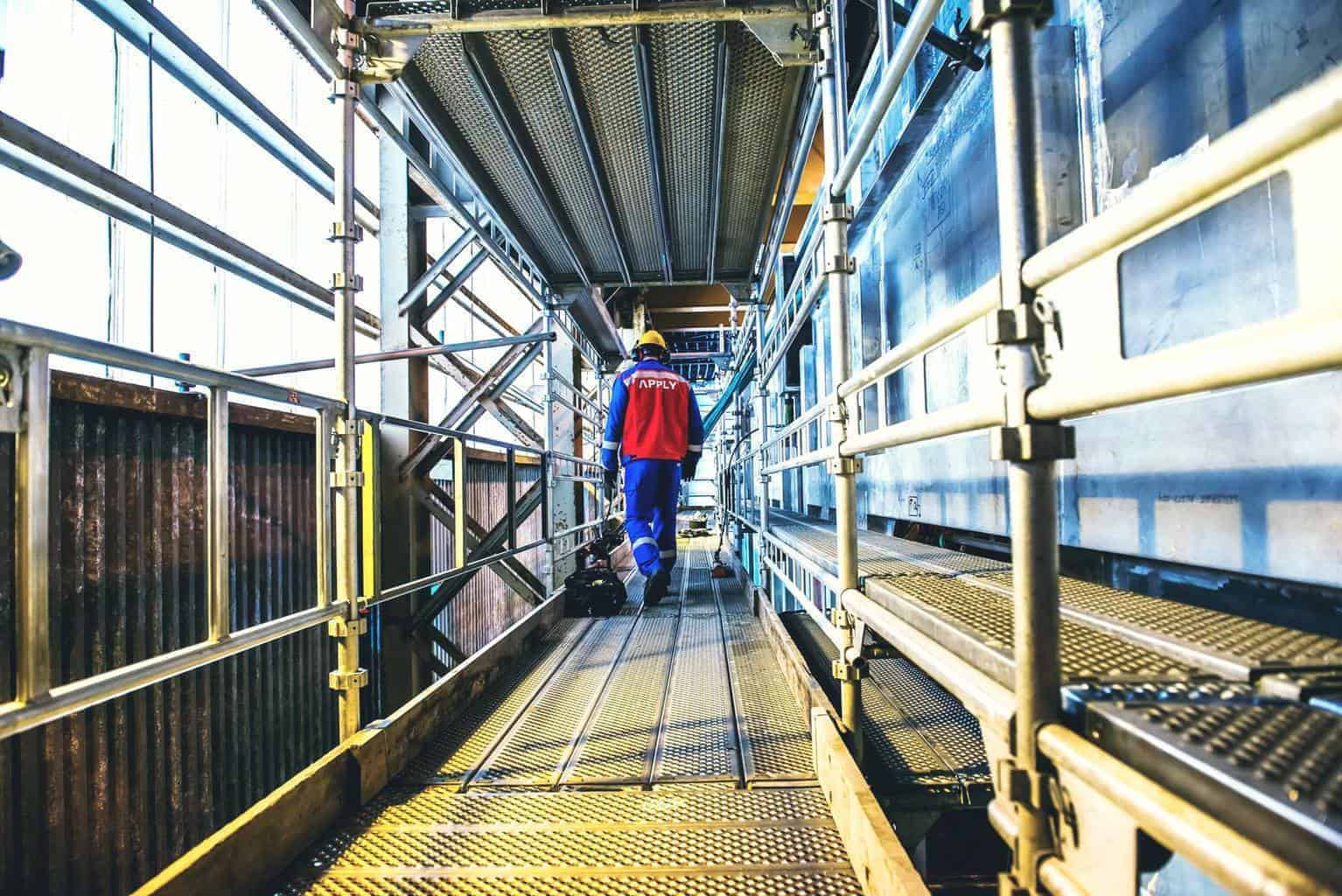
We Hoover (but we don’t Dyson). We Google (but we don’t Bing). Some of us apparently “Netflix and Chill” (which is potentially not safe for work, so please Google it if you don’t know what it means). Some brands are so synonymous with getting the job done, we verbify them. Which explains why just about everyone in this industry has been on site when the project manager asks for a Haki (and not just a staircase).
Haki’s climb to the top of the site staircase world – pardon the pun – is well earned. The staircase of choice for access and egress on low-volume traffic areas, it feels reassuringly rigid when in use and there are few out there that give the same level of comfort. The other jewel in the Haki crown lies in their roofing system. In a market saturated by copycat systems, so not much stands out, the consensus is that Haki has that extra capability.
The one challenge Haki faces as it eyes the big league, is that its access independence is completely underused compared with its beams, roofing system and staircases. Most people I have spoken to don’t realise that Haki, like Layher, provide a complete product range of components. As such, they remain completely loyal to Layher and haven’t considered purchasing Haki stock for an independent.
Cuplok
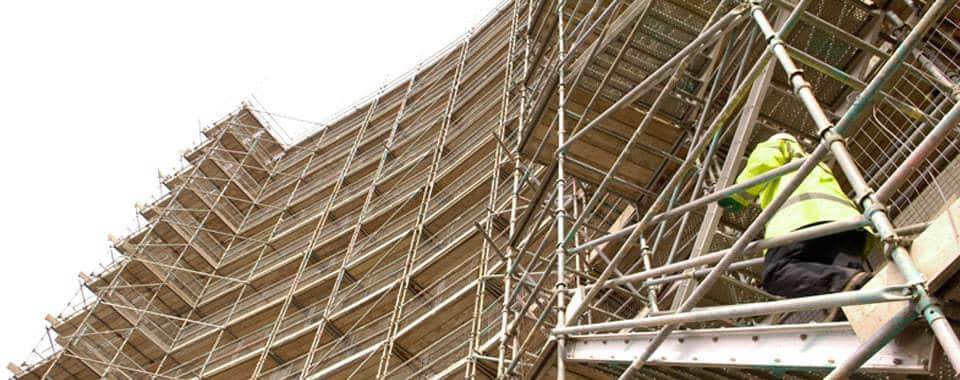
Cuplok is as famous as the company that created it. SGB’s flagship system scaffold was once widely used across the U.K. and popular amongst scaffold contractors for its incredible ability to work with tube and fitting. Unlike other systems that are all-or-nothing, you could erect the scaffold with the time-and-material savings that system offers, while retaining the flexibility that tube and fitting offers. To my mind, that’s a major win.
Over the past 17 years, I have watched the use of Cuplok decline to the point where it continues only through the hands of die-hard loyalists. The question is, will SGB return this once flourishing system to its former glory?
www.sgb.co.uk/products/scaffolding/cuplok-scaffold
Plattec Metrix
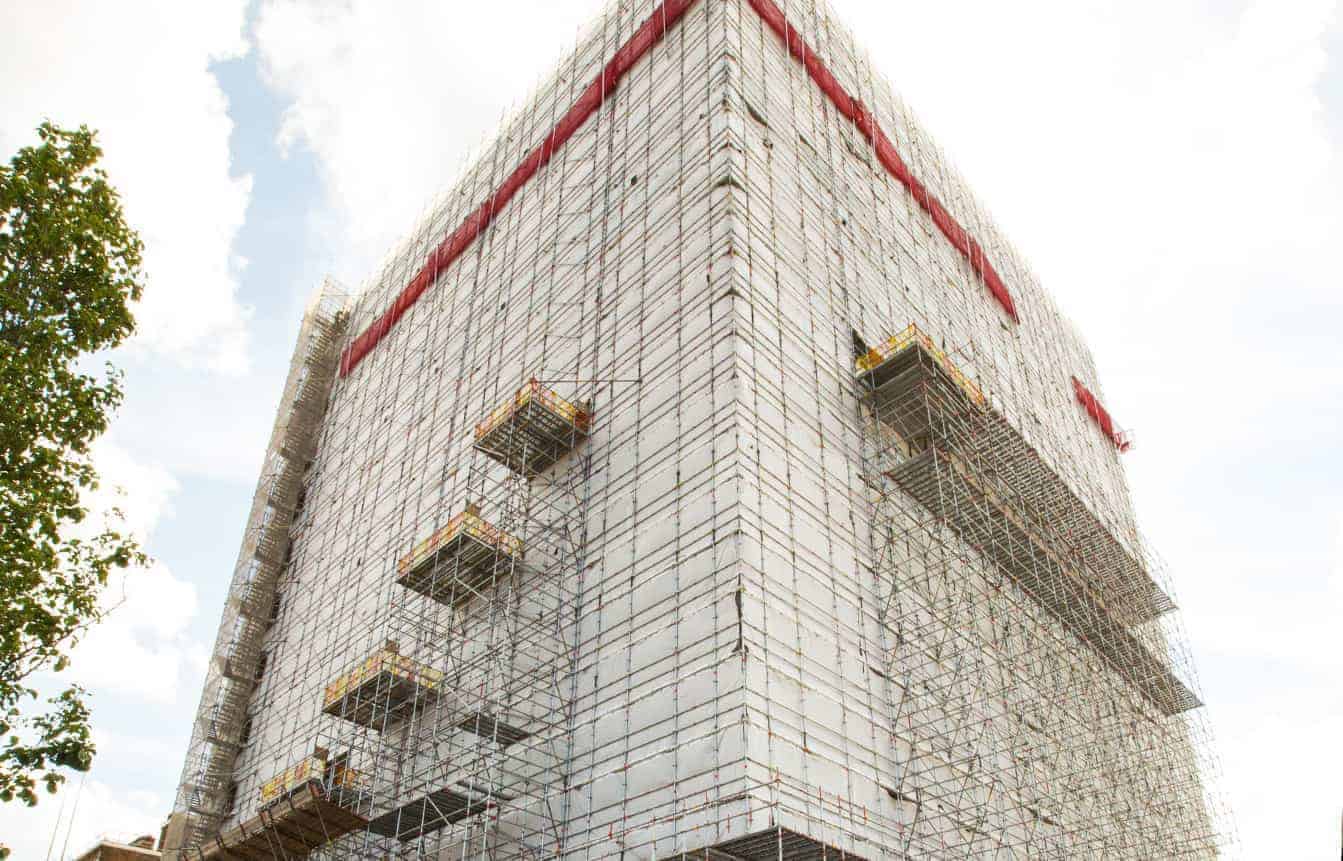
The new kid on the system block, Plattec is quickly making waves. It’s owned by the Altrad group and with the power of TRAD hire and sales behind it, along with the flexible finance they offer clients, I reckon the company is onto a winner.
Plattec looks almost identical to Layher but don’t let that put you off – it’s no copycat. Rather, the system carries its identity well with different applications of components and roofing systems. Being so young, there are still some problems to overcome. Plattec is not quite there yet with the full product range and they’ll have to build their component suite up quickly if they’re going to grab market share. I reckon this is one to watch.
www.tradhireandsales.co.uk/product-range/plettac-metrix/about/
Kwikstage
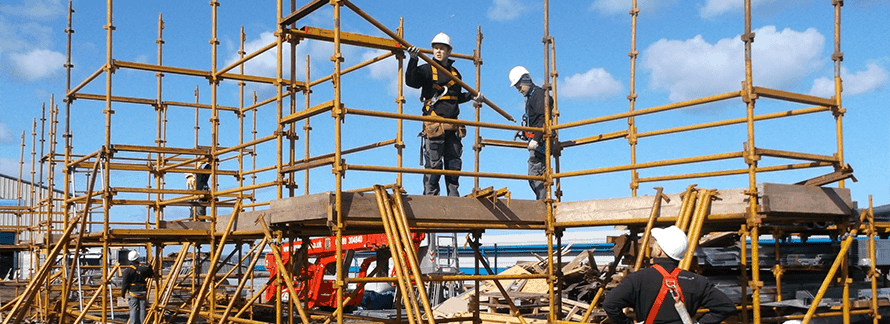
One of the original system access solutions, Kwikstage continues to benefit from RMD’s formidable presence in the temporary works arena and maintains a strong reputation with its staging, formwork and system scaffold. It has cracked a number of geographies and is widely used around the world. Except, interestingly, in England.
Despite the reputation, off all the systems, my experience is that Kwikstage needs a lot of improvements. It seems to be popular in Scotland and Ireland but in my 12 years of engineering and design, I have only completed five designs using this system.
Against these strengths and weaknesses, how do you choose a system? As always, it’s in the individuality that you can find the best fit for you, your team and your business. All the major companies hold regular open days. Whether you are in the market for system or not, I would urge you to do some research and have the conversations that will help you to make an informed choice.
The Future is System
I sit in a lot of pre-tender meetings with main contractors and the same question keeps popping up: can we build this in system? My answer is always yes, although some projects lend themselves to tube and fit better. The conversation that inevitably follows is the shrinking of the tender pool. The reality is, not all scaffold contractors will carry system …. yet.
Like most things in business, innovation starts with a whisper, then progresses to a shout. For all us diehard tube and fitting supporters, there’s an uneasy transition ahead. System scaffolding is coming faster than you think and it’s not a question of “if” but “when.” Are you ready to crack the system?
This article was first published in the Summer 2018 issue of the ScaffMag magazine.
